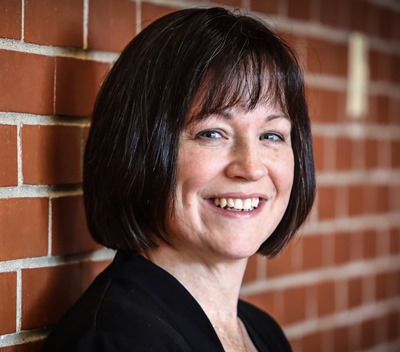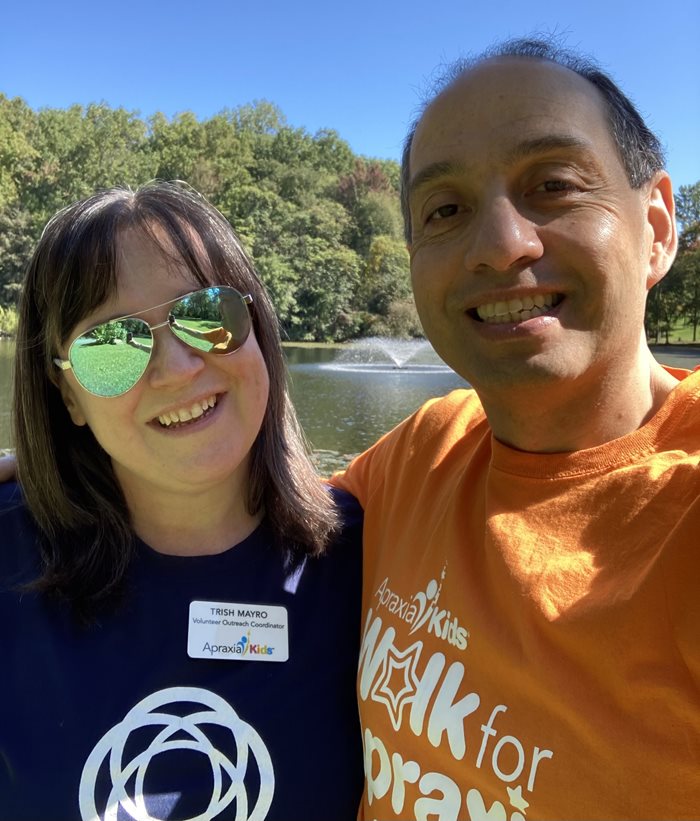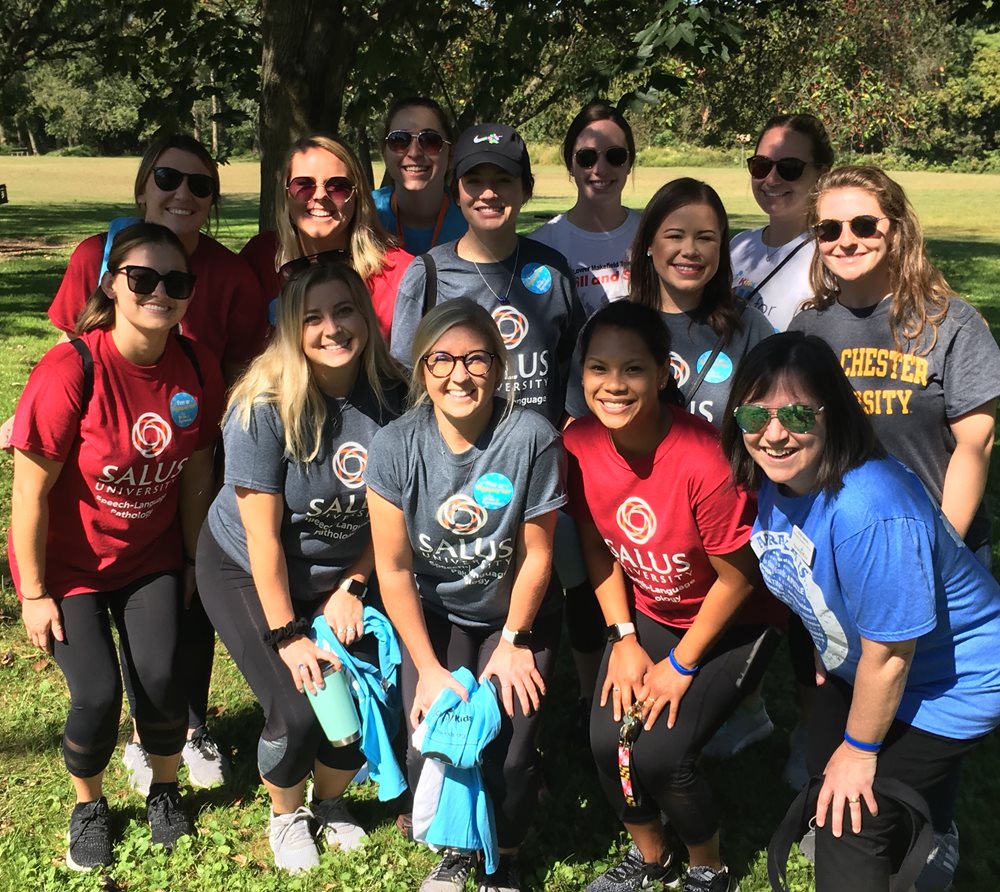Faculty Focus: Patricia Martin Mayro
Patricia Martin Mayro, MA, CCC-SLP, was here when the Speech-Language Institute (SLI) of Salus University opened its doors in 2015. In fact, she was part of the Speech-Language Pathology (SLP) Department even before it had any students.
 “It was very exciting. Bob Serianni (now the program director) and I were here at the clinic waiting for our accrediting body to approve the program to accept students for that fall’s semester,” said Mayro, SLP assistant professor.
“It was very exciting. Bob Serianni (now the program director) and I were here at the clinic waiting for our accrediting body to approve the program to accept students for that fall’s semester,” said Mayro, SLP assistant professor.
The clinical facility opened July 1, 2015, and accreditation approval did not happen until around July 25 that year
“Bob was handling the adult clients and I was handling the pediatric clients,” she said. “We had no students. And, here we are five years later, still doing it, but with lots of students with us.”
During that first cohort of students, the clinical facility was scrambling for clients because few people knew about it in its early days. But that’s all changed. Now, there is a list of at least 200 people waiting for services. There are also several support groups for things like Parkinson’s patients, aphasia patients, transgender voice therapy, traumatic brain injury and stuttering.
“So we’ve really expanded our services to not only have individual sessions in the clinic, and until the pandemic hit, we were sending some of our students to local preschools to help with the prevention of language disorders and also helping the kids who were a little bit delayed,” said Mayro.
 Like all of Salus University, SLP has had to make adjustments to deal with the pandemic. “It’s been interesting and we’re rising to the challenge. We’re being very intentional with our students to acknowledge that this is weird and that we need to give each other space to figure out what we’re doing,” said Mayro. “And, to reassure our students that we’re working with them and that we’re not unaware of the challenges they are facing.”
Like all of Salus University, SLP has had to make adjustments to deal with the pandemic. “It’s been interesting and we’re rising to the challenge. We’re being very intentional with our students to acknowledge that this is weird and that we need to give each other space to figure out what we’re doing,” said Mayro. “And, to reassure our students that we’re working with them and that we’re not unaware of the challenges they are facing.”
At this point, the department is conducting all classroom work online and has implemented a hybrid approach to its clinical work. There are many “tele practice” sessions with clients, but there are a small number of clients going onsite for face-to-face sessions.
“We’re doing all the protocols we need to do to be safe, but it is a challenge. Speech therapy requires us to see each other’s faces. What we’ve discovered is that for many of our clients, we can keep masks on and do our therapy because some of it is language therapy. We don’t need to see each other’s faces necessarily for that,” said Mayro.
But for those instances where the student and the client do need to see each other’s faces, there are Plexiglass panels on the tables and the students do have clear face shields that they use.
Aside from managing clients and being at SLI, Mayro does also have a “side gig” — that she likes better than cooking — and one that she’s very passionate about: she volunteers for an organization called Apraxia Kids. “Apraxia in kids can be very severe. It’s a motor speech disorder, so these kids have trouble making their articulators move the right way in order to get out speech. Mentally they know what they want to say, but physically they struggle,” she said.
 Mayro describes the organization as “fantastic” because it also supports parents who are seeking the best possible speech therapy for their children. In fact, a team of about 22 people from Salus, led by Mayro, participated in a virtual walk for apraxia in early October to help raise awareness about the condition.
Mayro describes the organization as “fantastic” because it also supports parents who are seeking the best possible speech therapy for their children. In fact, a team of about 22 people from Salus, led by Mayro, participated in a virtual walk for apraxia in early October to help raise awareness about the condition.
Being part of the Salus family over the past several years has meant a lot to Mayro. “I love how collegial we are. We’re a small enough institution that I know so many of my colleagues in other departments as well as my own department,” she said. “I’ve had so many chances to work together with others on committees and projects. And, that’s been really exciting for me. We know each other well. It’s not just a job, we really are colleagues.”